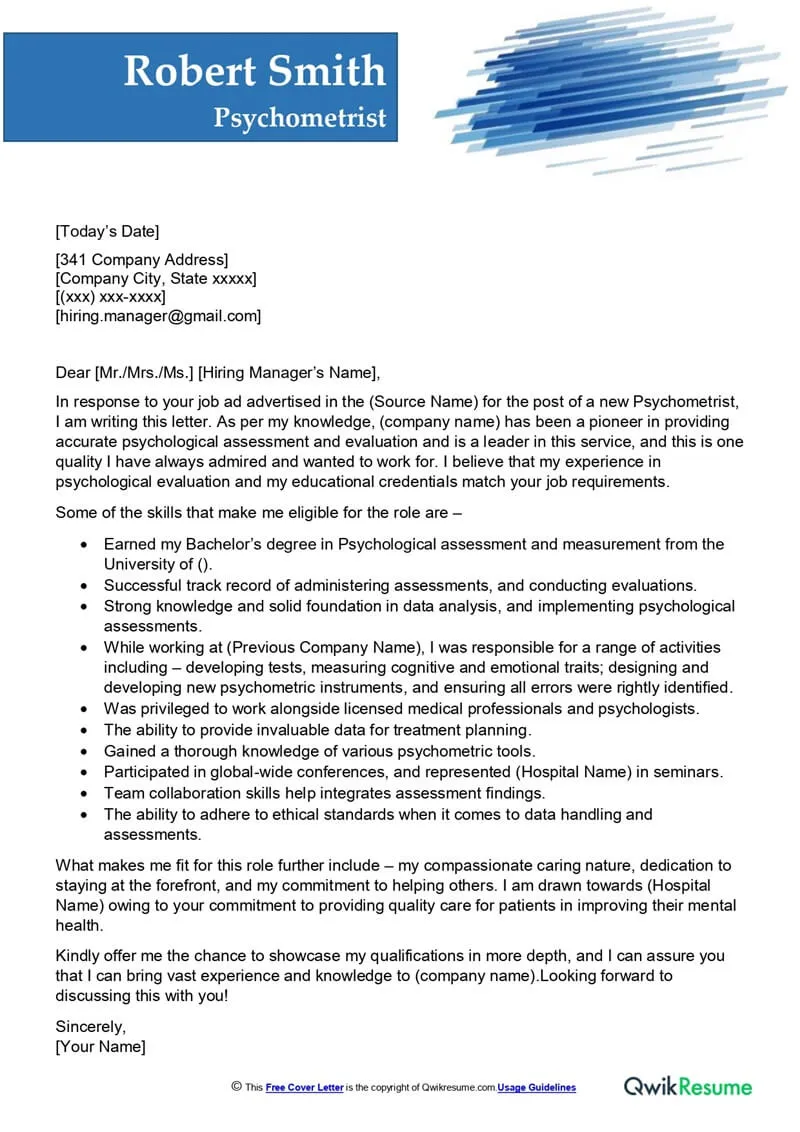Crafting Your Mental Health Social Work Cover Letter
Landing a job in mental health social work requires more than just qualifications; it demands a cover letter that truly resonates with the hiring manager. This is your chance to demonstrate not only your skills and experience but also your genuine passion for helping others navigate the complexities of mental health challenges. A well-crafted cover letter serves as your first impression, setting the stage for a successful application and potentially opening doors to a fulfilling career. This guide will help you create a cover letter that stands out, showcasing your ability to make a real difference in the lives of those you serve, while aligning with the core values and mission of the prospective employer. Let’s dive in and craft a cover letter that gets you hired!
Understanding the Role and Its Importance
Mental health social workers play a crucial role in supporting individuals facing a wide range of psychological and emotional difficulties. They provide therapy, counseling, and case management services, helping clients develop coping strategies, build resilience, and improve their overall well-being. The demand for these professionals is high, as society recognizes the growing importance of mental health care. Their work contributes significantly to individual recovery and community health. The role is incredibly impactful, helping people overcome barriers and reach their full potential. Understanding this, you can frame your cover letter to emphasize your commitment to making a positive impact.
Key Responsibilities in Mental Health Social Work
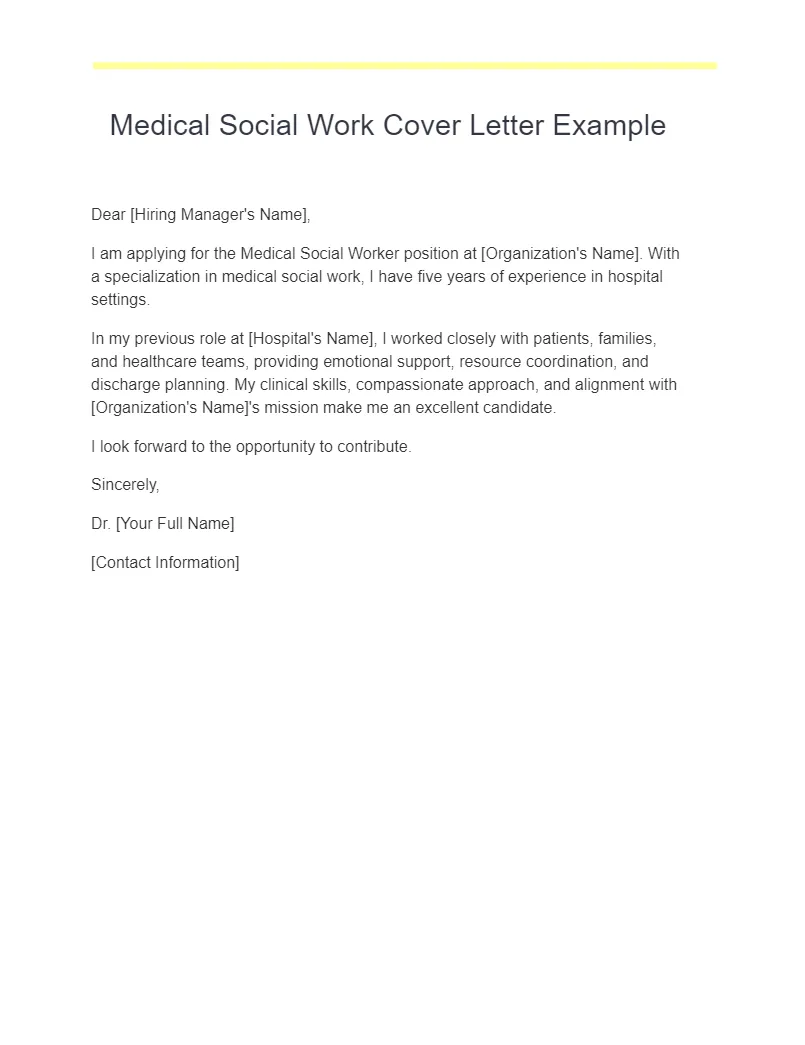
Mental health social workers undertake a variety of responsibilities. These responsibilities include conducting assessments, developing treatment plans, providing individual and group therapy, and advocating for clients’ needs. They often collaborate with other healthcare professionals, such as psychiatrists and psychologists, to provide comprehensive care. Another aspect involves providing crisis intervention, offering resources, and ensuring clients have access to necessary support systems. Social workers also document client progress and maintain confidentiality, adhering to ethical guidelines and best practices. Highlighting your experience in any of these areas in your cover letter is critical to demonstrate your qualifications.
Essential Elements of a Compelling Cover Letter
A compelling cover letter goes beyond simply listing your qualifications; it tells a story. It’s about connecting your skills and experiences to the specific requirements of the job and demonstrating why you are the best fit. It should be personalized to each position, highlighting how your values align with the organization’s mission. The key is to be clear, concise, and enthusiastic, letting your personality shine through. This section covers the fundamental components that make your cover letter not only effective but also memorable.
Header and Contact Information
Your header should contain your full name, professional title (e.g., Licensed Clinical Social Worker), phone number, email address, and LinkedIn profile URL (if applicable). Ensure this information is accurate and up-to-date. The header sets the professional tone for your entire letter and makes it easy for the hiring manager to contact you. Consider formatting it clearly, ensuring that it’s easily readable and visually appealing. This seemingly small detail shows attention to detail and professionalism, leaving a lasting impression.
Addressing the Hiring Manager
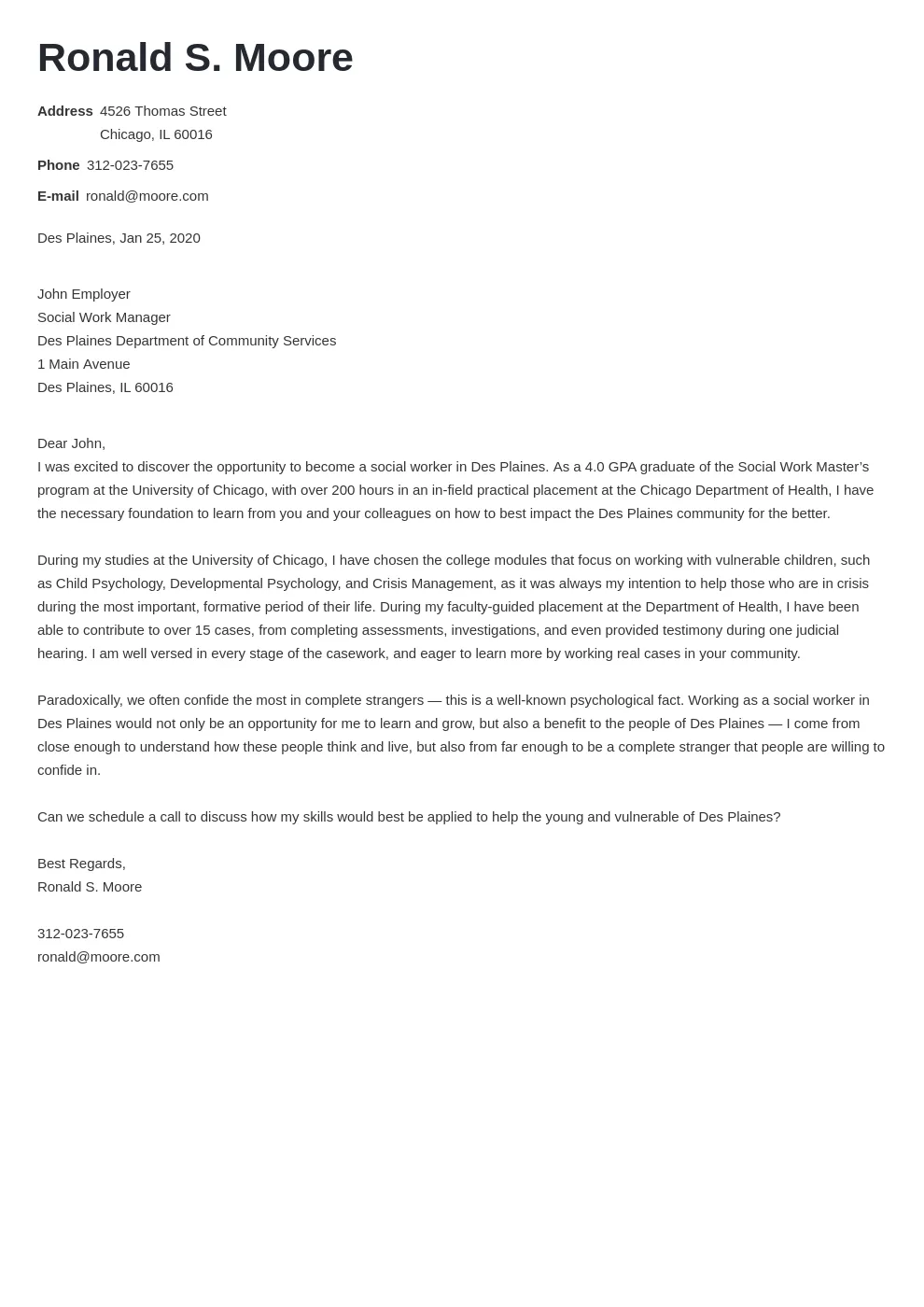
Whenever possible, address the hiring manager by name. Research the organization to find out who is responsible for reviewing applications. Using the name, rather than a generic greeting, shows that you have taken the time to research the position. It demonstrates initiative and personalized effort. If you’re unable to find a name, a professional greeting like ‘Dear Hiring Committee’ is a suitable alternative. It is a good approach to give your letter a personal touch and increase its impact.
Writing a Strong Opening Paragraph
The opening paragraph is your hook; it grabs the reader’s attention and sets the tone for the rest of the letter. Clearly state the position you are applying for and how you found the job posting. Briefly mention something that interests you about the organization or the role. This could be a specific program they offer, a value they emphasize, or their reputation in the community. This initial paragraph should pique the interest of the hiring manager, encouraging them to continue reading. It should be concise, professional, and demonstrate your enthusiasm for the opportunity.
Highlighting Relevant Skills and Experience
The body of your cover letter is where you highlight your relevant skills and experience. Carefully review the job description and identify the key requirements. Then, provide specific examples of how your experiences align with these requirements. Use the STAR method (Situation, Task, Action, Result) to provide context and demonstrate your accomplishments. Quantify your achievements whenever possible. This section is about proving that you can do the job, so focus on the specific skills that make you a strong candidate.
Showcasing Empathy and Compassion
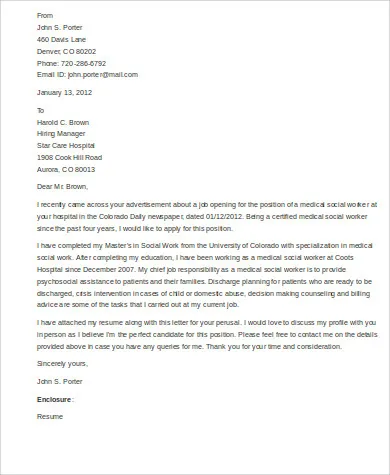
Empathy and compassion are essential qualities in mental health social work. Show how you’ve demonstrated these qualities in previous roles. Provide examples of situations where you went above and beyond to support clients, showing understanding and emotional support. This showcases your commitment to the well-being of others and makes your application more personal. It helps build trust, demonstrating the depth of your care and commitment to the profession.
Demonstrating Knowledge of Mental Health Conditions
Mental health social workers need a solid understanding of various conditions. Mention your familiarity with specific disorders and treatment modalities relevant to the job. Discuss any specialized training you possess. It shows that you have the necessary knowledge base to provide effective support. If you have experience in a particular area of mental health, make sure to highlight it, because it shows an immediate understanding of the clients’ needs.
Quantifying Achievements
Whenever possible, quantify your achievements. Use numbers to demonstrate the impact of your work. For example, ‘Increased client engagement by 20%’ or ‘Successfully managed a caseload of 40 clients’. This provides concrete evidence of your skills and accomplishments, helping the hiring manager understand the value you bring to the table. Providing metrics makes your statements more credible and shows that you have made a measurable impact in your previous roles.
Expressing Your Passion for the Field
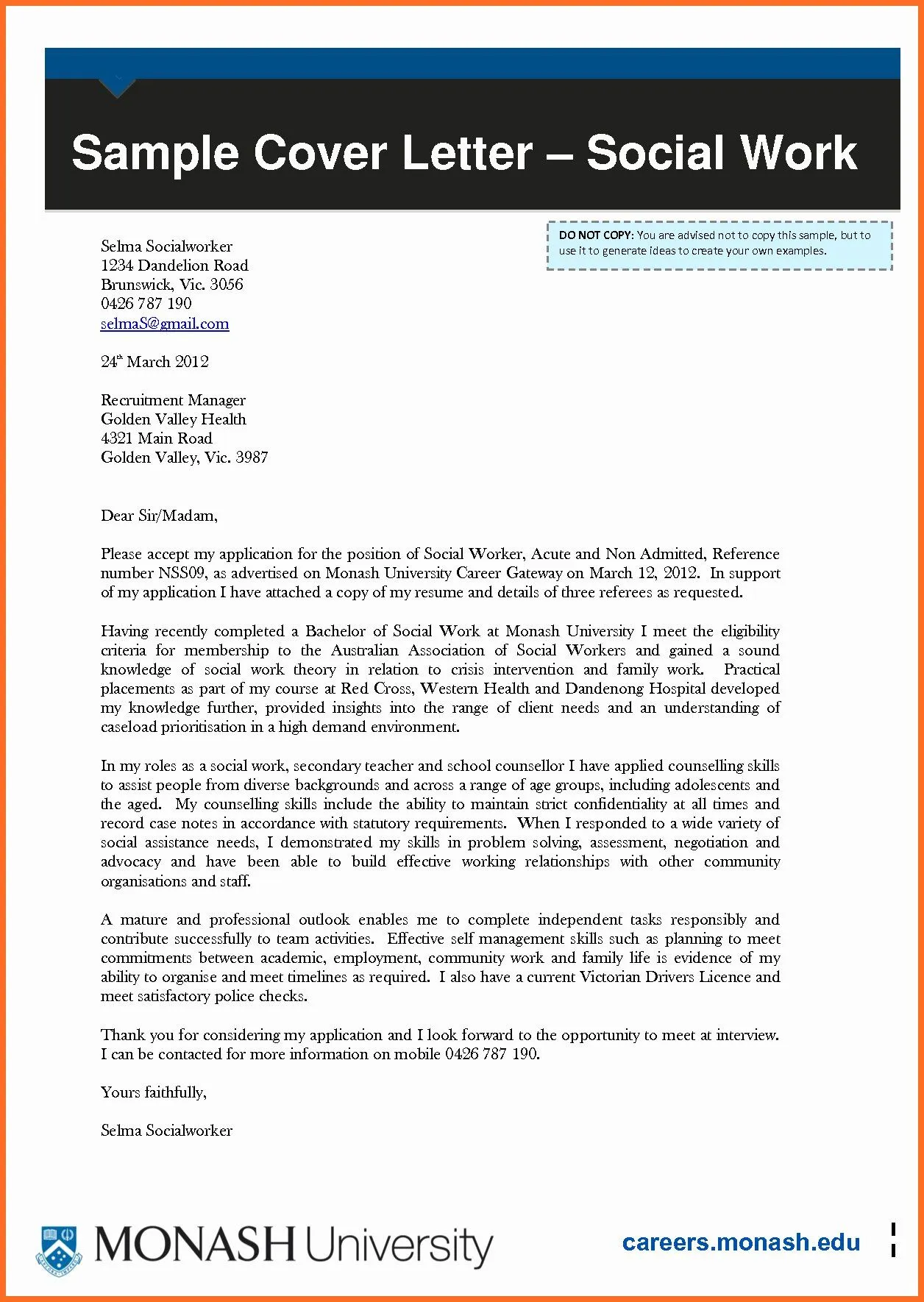
Mental health social work is often a calling, not just a job. Show your passion for the field by discussing what motivates you to work in mental health. Mention any personal or professional experiences that have shaped your commitment to helping others. This includes your goals, values and the work you find most gratifying. This helps the hiring manager understand your dedication and enthusiasm for the role. Let your sincerity show through; it adds a personal touch that makes you more relatable.
Writing a Powerful Closing
Your closing paragraph should reiterate your interest in the position and thank the hiring manager for their time and consideration. Express your enthusiasm for the opportunity to discuss your qualifications further and state your availability for an interview. Include a call to action, such as ‘I look forward to hearing from you soon.’ Keep it professional and concise. This reinforces your keenness and makes a clear statement that you are ready to move forward in the application process.
Formatting and Proofreading Your Cover Letter
A well-formatted and error-free cover letter shows attention to detail and professionalism. This section provides specific guidelines and tips on formatting your document and ensuring it is polished and ready for submission.
Formatting Guidelines
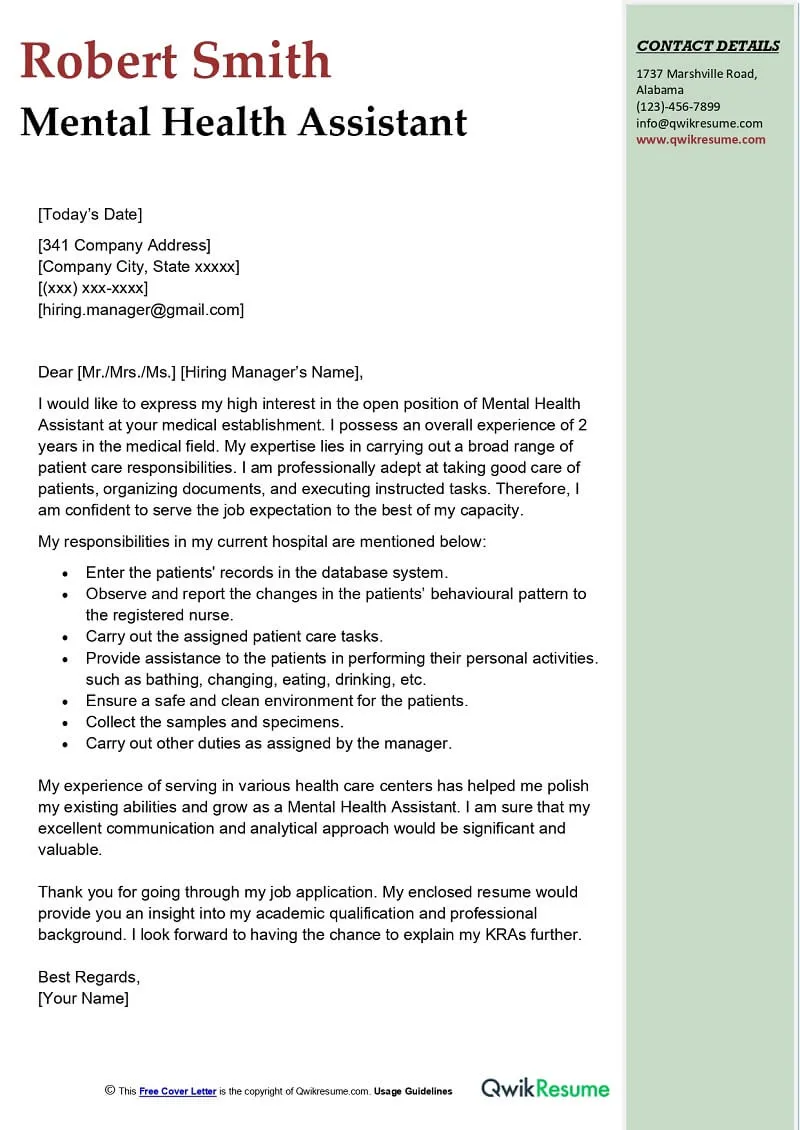
Use a professional font like Times New Roman, Arial, or Calibri, with a font size of 11 or 12 points. Maintain consistent formatting throughout the document, including line spacing (typically single-spaced with a space between paragraphs) and margins (usually 1 inch). Keep your cover letter to one page; hiring managers often have many applications to review. Using clear formatting makes the letter easier to read and shows respect for the hiring manager’s time. It’s a simple way to present yourself as organized and professional.
Proofreading Tips and Tricks
Proofread your cover letter multiple times. Check for grammatical errors, spelling mistakes, and typos. Use a grammar checker tool and have someone else review your letter. A second pair of eyes can often catch errors that you might miss. Reading it aloud can also help you identify awkward phrasing or unclear sentences. Ensure that all the necessary details are included and presented clearly. Proofreading carefully shows attention to detail, and ensures you make the best possible impression.
Tailoring Your Cover Letter to the Specific Job
Customizing your cover letter for each job application is crucial. This involves researching the employer and the specific requirements of the position. Here’s how to do it:
Researching the Employer and the Position
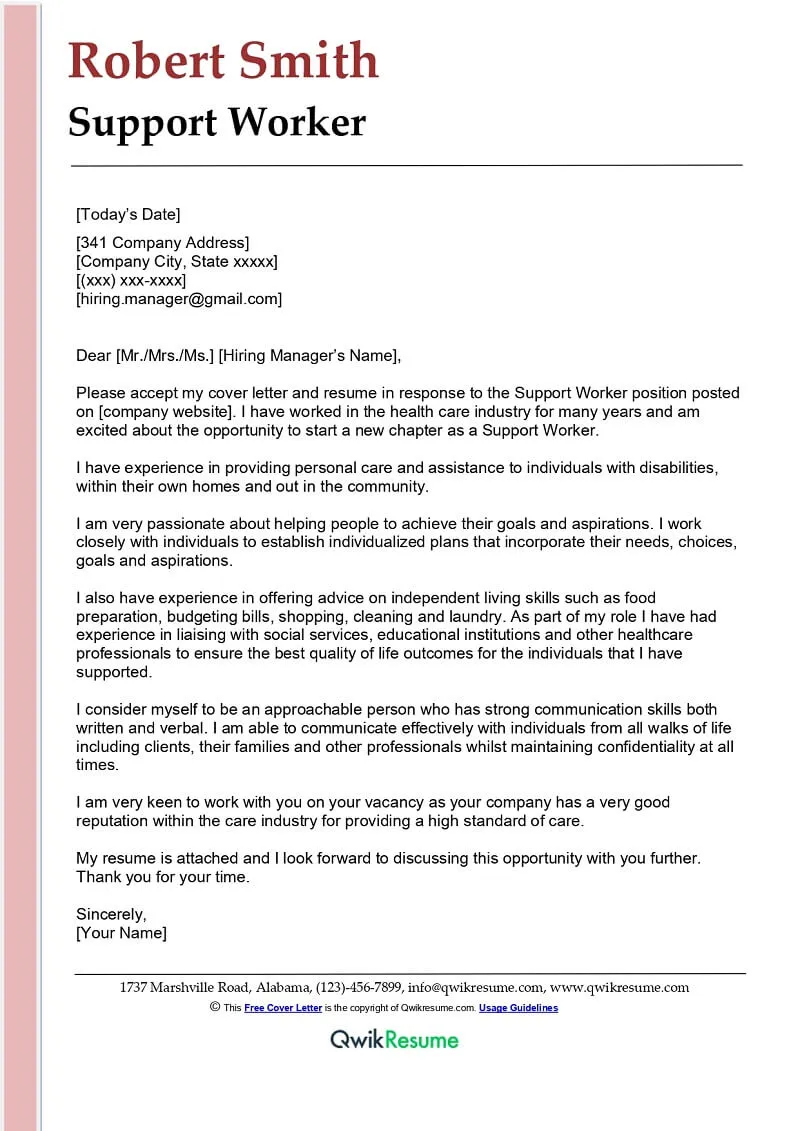
Before you start writing, research the employer and the specific role. Visit their website, read their mission statement, and review their social media presence. Identify their values, the services they offer, and the types of clients they serve. This information will help you tailor your cover letter to match their specific needs and demonstrate a genuine interest in their organization. Also, study the job description carefully, highlighting the key skills and qualifications they are looking for.
Matching Your Skills to the Job Requirements
Once you understand the employer and the position, match your skills and experience to their requirements. Use keywords from the job description and provide specific examples that demonstrate how you meet their needs. This makes your cover letter more relevant and increases your chances of getting an interview. It is important to address all the requirements and show that you have the right skills for the job.
Following Up After Submitting Your Application
After submitting your cover letter and resume, a follow-up shows initiative and enthusiasm. Send a polite email to the hiring manager within a week or two to reiterate your interest and ask about the status of your application. This follow-up helps you remain top of mind. Keep the email brief, thanking them again for their time, and stating your availability for an interview. Be polite, professional, and enthusiastic.
By following these steps, you can create a compelling mental health social work cover letter that highlights your qualifications, passion, and commitment to helping others. Good luck with your job search!
